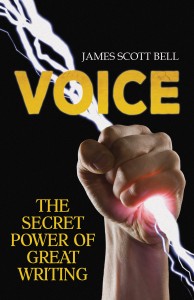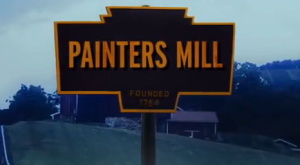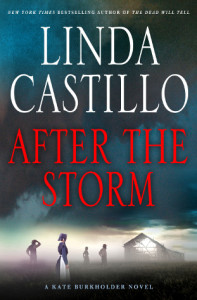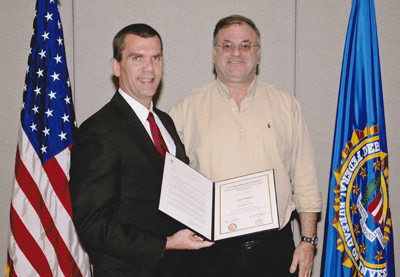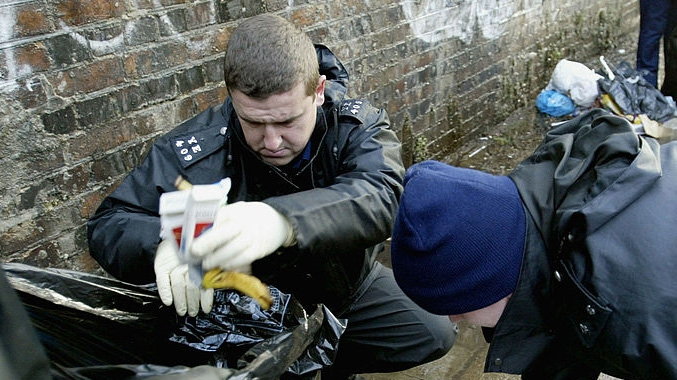 I’m traveling all day today, so I’ll leave you with a question for discussion. Do you ever use writing prompts to get your creative juices going? Are they helpful? If so, what is the best source you’ve found for writing prompts?
I’m traveling all day today, so I’ll leave you with a question for discussion. Do you ever use writing prompts to get your creative juices going? Are they helpful? If so, what is the best source you’ve found for writing prompts?
Monthly Archives: October 2015
The (Story) Doctor Will See You Now
Happy to report… I’m still in France.
Two weeks ago, also while I was in France, I posted an excerpt from my newly released writing book, “Story Fix: Transform Your Novel From Broken to Brilliant” (Writers Digest Books). Here is another one, this from Chapter 13, “The Doctor Will See You Now,” which refers to the three real life case studies — not from published novels, but from unpublished authors — that follow.
This excerpt helps set up the context relative to the value of reading unpublished (and dare I say, unpublishable) novels, provided you are reading with a full awareness of the principles of effective storytelling.
If you aren’t — and if you’ve ever been in a critique group you’ll know what I’m saying here — you may not be able to tell the difference.
Here then, is the excerpt:
The Best Learning of All
As we move forward in our writing journey we gather knowledge and evolve our skills. Part of that process includes reading the published work of best-selling authors and, sometimes, the novels and screenplays of our peers. What we learn there depends on what we bring to that reading experience. If you are new to writing, then perhaps those published stories appear to be nearly seamless; they almost look easy. Sometimes, in the quiet of our own hubris, we think we could do as well. And so we learn to duplicate what we see in successful works relative to storytelling craft.
But this can be like watching heart surgery from the O.R. gallery and to go home to try to insert a valve into the heart of a loved one in your living room. Because it looked easy. It’s a rather dark and absurd analogy, I grant you, but it’s also apt. In the hands of a professional, the complex can appear symmetrically accessible. Chances are—actually, it’s a certainty—your less-than-fully-enlightened eye doesn’t capture all there is to learn when you read a bestselling novel or see a great film. Many of the details, principles, nuances, and creative moves disappear into the whole of the story.
The theory of spending ten thousand hours of apprenticeship to reach a professional level of excellence has no better testimony than in the field of writing fiction.
I contend that the more you understand about craft, the easier it is to identify both strengths and weaknesses in the work of others, which turns those works into better teaching tools.
And so, now that you’ve internalized this information and stand at the gate of storytelling enlightenment, you are about to enter an exciting new world, the realm of the principles screaming out to you from the pages of those same published novels in a way you’ve never been able to see and comprehend before. Your learning curve is about to go vertical, because this very experience—looking for and recognizing craft in the stories you consume, seeing how they did it, recognizing the principles in play—is the second most enlightening opportunity you’ll ever know in your life as a writer.
This is assuming that you bring along your knowledge of craft as you review published stories. If you’re still guessing or trying to prove these principles wrong, then you’re on your own in recognizing the symmetrical and nuanced beauty of craft imbedded in the complex and distracting ambiance of a well-told story. It’s like looking at an X-ray. It’s almost impossible to see anything of importance until someone with a white coat points it out to you.
Hopefully you now have a white coat of your own to bring to the discussion.
You might be thinking, So you said reading stories from this new context is the second most enlightening opportunity I’ll have. Then what is the first, the best learning experience available?
I was hoping you’d ask.
The only compromise in using published works as learning models is that any problems and miscues that may have existed during development, any departures and fumbling of the principles, has likely already been caught and remedied. Sure, you may find a typo or two in a published book, but we’re talking story-level issues here, and those have been, for the most part, repaired. There’s no case study of revision-in-waiting to be found in a finished David Baldacci novel or a Steven Zaillian script.
The richest learning experience awaits in reading the work of newer writers and their unpublished stories, stories that haven’t yet reached up to grab the bar, even stories in development that expose what the writers aren’t seeing, aren’t getting, and may be tripping over as their stories tumble into an abyss of their own digging.
When you read these stories and story plans with an enlightened eye, with an embrace of all the principles and criteria you have just consumed, this becomes the most affirming, illuminating, and clarifying learning experience of all. Because now you can see how it looks behind the scenes, on the bloody battlefield of story development, where chaos must be confronted and ignorance leading to seductive temptation must be conquered.
I’m betting you can relate to that.
And I’m trusting that, in these case studies, you’ll quickly see what I saw as the guy doing the evaluation and giving the often difficult feedback.
Read and learn. Other than helping your writer friends or participating in a critique group, this may be the best opportunity you’ve ever had to have a writing epiphany, for realization to manifest before your newly enlightened eyes.
Put your story-coaching hat on and see how a story looks from the outside, with a view toward understanding what went wrong from the inside.
The Power of Voice
 It’s the most mysterious part of the fiction craft, but the one thing agents and editors say is most essential.
It’s the most mysterious part of the fiction craft, but the one thing agents and editors say is most essential.
It’s something writers talk about––and readers respond to––but no one seems to know how to teach it.
Indeed, there are those who say it can’t be taught, because you either have it or you don’t.
It’s voice.
Writers hear about it all the time at conferences. Yet no one can agree even on a definition.
Over the years I’ve jotted down the ways agents and editors describe voice. Here are a few:
- A combination of character, setting, page turning.
- A distinctive style, like a Sergio Leone film.
- It’s who you are.
- Personality on the page.
- It’s something written from your deepest truth.
- Your expression as an artist.
You’ll often hear these same people say they turned down a book because the voice was “weak.”
So how the heck do you find your voice when the very definition is so vague? Is it something that can be developed? Is it something you’re just born with? Do you have to find it by trial and error, if you find it at all?
What if you write in different genres? Is your voice in a noir thriller going to be the same as your voice in a romance? Should it be?
In my new book, VOICE: The Secret Power of Great Writing, I provide the answers.
And it starts with a stunning realization: voice does not come from the author.
I’ll let you chew on that a moment.
Now that I have your attention, let me explain. I mean that we should not conceive of voice as coming from the author alone, without any other considerations. The best fictional voice is an interplay between the characters and the author, and then between the author and his craft as he puts the words on the page.
My definition, therefore, is as follows:
CHARACTER background and language filtered through the AUTHOR’S heart, and rendered with craft on the PAGE = VOICE
In the book, I explain how this relationship works, and give you specific techniques to put it into practice. The goal is to make every book you write unique and compelling on its own terms.
I call this the CAP Method.
C is for Character. I describe five key questions a writer must answer for every POV character. Then we proceed to the best ways to both see and hear the characters before you write them.
A is for Author, and this is all about achieving symbiosis, that mysterious connection between creator and character. It’s similar to how great actors approach a role. I’ll show you how to do it.
Finally, P is for Page, the craft part of the writing, and here I offer you a writing technique that I’ve never seen taught before, something I developed from my own days as an actor. It’s a way to feel your character’s emotions every time you write a scene.
Which is when the magic happens.
And magic is what you need. Because the main complaint I hear these days from readers is that such-and-such a book was “okay,” but felt like the “same old, same old.”
Tapping into the power of voice will obliterate that objection.
Let me give you an example. Below is a paragraph from a published thriller describing a bit of New York City:
There were sidewalk vendors and bustling clothing stores and lines of people in front of curbside food carts. There was also a lot of scaffolding and cranes from new construction and building renovations. I even saw a Times Square-style double-decker bus go by filled with wide-eyed tourists.
Ugh. There were and There was in two consecutive sentences. Then simple reportage that could have come from a brochure. There is no voice here, no sense of character. Anyone could be describing this scene.
Now look at a master at work:
Some days hang over Manhattan like a huge pair of unseen pincers, slowly squeezing the city until you can hardly breathe. A low growl of thunder echoed up the cavern of Fifth Avenue and I looked up to where the sky started at the seventy-first floor of the Empire State Building. I could smell the rain. It was like the kind that hung above the orderly piles of concrete until it was soaked with dust and debris and when it came down it wasn’t rain at all, but the sweat of the city.
That’s the opening of Mickey Spillane’s The Killing Man, and from the get-go we are inside the character. We see the city through his eyes, feel it through his heart.
It’s the difference between fiction that is fine and fiction that is unforgettable.
An acquisitions editor for a major publisher, Marian Lizzi, once said, “As my first boss used to warn us green editorial assistants two decades ago, the type of submission that’s the toughest to spot – and the most essential to avoid — is the one that is skillful, competent, literate, and ultimately forgettable.”
That’s why voice is so important. It takes you from skillful, competent, literate, and forgettable to the kind of book we all love to find—unputdownable.
Which is why I felt we needed a book on the subject. It can be found at:
So what characters come to mind when you think of a compelling voice? I nominate Holden Caulfield. What about you?
Reader Friday: The Hardest Part
Sometimes You Have to Stop and Smell the Research – Guest Linda Castillo
I’m excited to have my friend, New York Times & USA Today bestseller Linda Castillo, as a guest today at The Kill Zone. I’m a huge fan of Linda’s Kate Burkholder series set in Amish country. Highly recommended. Her debut thriller in this series (one of my favorite books), SWORN TO SILENCE, earned starred reviews from Library Journal, Publisher’s Weekly, and Booklist—and spent four weeks on the New York Times bestseller list. The book was also adapted into a two hour original movie re-titled AN AMISH MURDER, starring Neve Campbell as Kate Burkholder. I really liked the film adaptation. Linda is here today to talk about the special research she does on this series. Welcome, Linda!
Linda Castillo: Website & Twitter
Nothing gets a writer’s creative juices flowing like research. Okay, that’s not exactly true for everyone, but the importance of solid research should never be underestimated.
There are three camps when it comes to that aspect of writing. First, there are the writers who love it. The obsessive-compulsive types who spend days or weeks or even months completely and happily immersed in whatever subject matter they’re about to embark upon.
Then there are writers like me, who walk a center line (not necessarily a straight line.) I research the central external theme of my book. For example, if the story involves a cold case and there’s a dead body in the mix, I’ll read everything I can get my hands on about decomp, forensics, and police procedure regarding old cases. For the smaller details, I research as I write.
And, finally, there are those writers who detest research. Writers who would rather . . . well . . . write than bury their noses in tomes of seemingly extraneous information for weeks on end. They want to get to the story already, and who can blame them if said story is burning—or a tight deadline beckons? Well, slow down, Mr. Type A, because in the end, solid research can save you hours of re-writing—and maybe even save the book.
One thing is certain: A writer can never know too much about his or her subject matter. That is an indisputable fact. Do your research and take the time to do it right. Thorough research will help you write the book. It can help you find that brilliant twist your story is begging for. It adds confidence to your voice. It adds power and credibility to your writing. In the long run, it can save you time. Knowledge and/or expertise cannot be faked, no matter how good a liar you are. If a writer tries to write about a subject he or she doesn’t know squat about, it will show. Readers will know.
A couple of quick caveats:
While it’s true that a writer can never do too much research, keep these two points in mind. Your research should never show. And you shouldn’t hide behind your research because you’re afraid to write the book. Writers, you know what I mean.
I write an Amish-set thriller series. My protagonist, Kate Burkholder, is the police chief of a small farming community in Ohio’s Amish Country. Kate left the plain life when she was eighteen and eventually found her way into law enforcement. Years later, when her mother passed away, Kate returned to her hometown to bury her. While she was there, the mayor and town council approached her, informing her that the police chief had retired and asking her to fill the position. The Amish are a large part of the local economy and they believed Kate could help bridge the gap between the “English” and Amish communities. Not only did she have big city law enforcement experience, but she knows the Amish traditions, the religion, and she’s fluent in Pennsylvania Dutch.
Does anyone see a few research challenges lurking in there? Believe me, there were many challenges, especially early on. As a writer, it was extremely important to me to depict the Amish correctly and honestly. I wanted to write a protagonist who could immerse us not only in the world of a small-town chief, but in the Amish culture as well. I wanted my police procedure to be spot on. I wanted to paint a vivid picture of this bucolic small town. I wanted readers to see it and hear it and smell it. I wanted them to feel as if they’d walked the streets and seen the endless cornfields, heard the rustle of the stalks and clip clop of shod horse hooves on pavement.
Here are some of the things I did to get it right:
I’ve always enjoyed writing cops. Early in my career, while I was still writing romantic suspense, I enrolled in and graduated from two citizens police academies. The experiences were incredibly fun and a tremendous learning experience. The classes and field trips were exciting and in many ways, real eye openers. The things I learned and the contacts I made have served me well in my writing life. If you’re writing a character who’s in law enforcement or a police procedural, I highly recommend you grab a buddy and enroll in (and graduate from) a citizens police academy (or two!)
On the forensic side:
I’ve had the opportunity to tour two morgues. The Charity Hospital morgue in New Orleans and the Collin County Medical Examiner’s office and morgue near Dallas. I was invited into the “cold” room of the Collin County Morgue. Luckily, there was only one “customer” there that day. One of the more unforgettable aspects of the tour was the smell. I was surprised that even with a separate, state-of-the-art HVAC system, the smell of death was unmistakable and strong. It was a fascinating, disturbing and enlightening experience that has been a tremendous help with my writing.
I also scored an in-depth tour of the Criminal Investigation Laboratory at the Institute of Forensic Sciences in Dallas, which was utterly fascinating. This is a bit of an inside joke, but I’ll never look at a lunch-size brown paper bag the same way again. Who knew the storage of forensic evidence could look so benign?
Writing a different culture:
As you can imagine, writing an Amish-set series required a huge amount of research. The Amish culture is complex with a long history. They’re also somewhat of a “closed” society. Many Amish prefer to stay separate from the rest of the world. While that made them infinitely more interesting to my writer’s mind, it made making contact with them and learning about their culture more difficult. I took advantage of several in-depth and well-researched books. But I needed more . . .
A librarian from Ohio to the rescue . . .
Don’t ever underestimate the ability of a librarian to help you find exactly what you need in terms of information. During my first book tour in Ohio, I met a wonderful librarian and we’ve become fast friends. Denise lives in the heart of Amish Country and has generously shared her infinite wisdom of the Amish culture. She has gone above and beyond, planning research trips, sending me books and articles (and apple butter!) She’s friends with many of the local Amish families and has introduced me to them, included me in social events with them. (Yes, I even got to drive a buggy!) She is a dynamo, fun to hang out with—and a good friend. She’s been indispensible in terms of research and I’m so lucky (in so many ways) to have made contact with her. Writers, get to know your librarians. They are a wealth of information, and they love to help.
That brings me to my next research topic: Know your locale. Familiarize yourself with the area in which your book is set. That’s especially true if your locale is unique, such as Ohio’s Amish Country. While it’s true you can learn quite a bit about a place by reading about it and by looking at pictures, nothing beats boots on the ground. When you’re there, all five senses are engaged. When you talk to someone, you not only hear their voice, but their inflections. You see their mannerisms. You notice so many things all around you that can add richness and depth to the world you’re building. Of course, there are times when you can’t visit your locale. Travel is expensive and time consuming. But if you get the chance—go and experience your locale.
I’m a firm believer in that this kind of hands-on research is a vital part of writing a more powerful, credible and vivid novel. Research becomes part of the creative well from which we delve when we set our pens to page. It becomes part of our muse, and that’s a precious thing. Keep your muse happy and refill the well often.
BIO:
Linda Castillo knew from an early age that she wanted to be a writer—and penned her first novel at the age of thirteen. She’s published thirty books for three New York publishing houses and won numerous industry awards, including a nomination by the International Thriller Writers for Best Hardcover, the Golden Heart, the Daphne du Maurier Award of Excellence, and a nomination for the prestigious Rita.
Her debut thriller, SWORN TO SILENCE, garnered starred reviews from Library Journal, Publisher’s Weekly, and Booklist—and spent four weeks on the New York Times bestseller list. The following books in the series also hit the NYT and USA Today lists and became international bestsellers. Last year SWORN TO SILENCE was adapted into a two hour original movie re-titled AN AMISH MURDER and starring Neve Campbell as Kate Burkholder.
In her spare time, Linda enjoys trail riding, and dabbles in barrel racing. She resides in Texas with her husband, two rescued Blue Heelers, and two Appaloosa horses. She’s currently at work on her next novel, a thriller set in Amish Country and featuring Chief of Police Kate Burkholder.
How to write your first novel
It seems like every time I meet someone and they learn that I’m a writer, they always comment that they had often thought of writing a book, too. Sometimes I think the prospect of being a published author may be the number one goal or dream of everyone who has ever been excited by a good novel. It’s natural to think, “I could do that.” And in reality, they can. But most don’t or won’t. Why? Because the dream far exceeds the labor. Like most specialized occupations, the average would-be author will remain in the dreaming stage. Few proceed to the next step: actually sitting down and writing a publishable, contemporary work of fiction.
But for those that really want to take the next step, here are a few tips on getting that novel “inside us all” onto the page.
First, become an avid reader with the eyes of a writer. Read as many novels as you can get your hands on. But try to read from a writer’s viewpoint. Read for technique and style and voice. Keep asking questions like: Why did the author use that particular verb? Why is the writer using short, choppy sentences? Or long, thick description? As you choose new books to read, cross over genre lines. The genre you wind up writing might not be the one you first imagined. Reading other’s work can also be inspiring. It is a source of ideas and helps to get the creative juices flowing.
Next, know the marketplace and write for it. The end product must be sellable. This goes back to being familiar with your chosen genre. You may love westerns, for instance, but they can be way down the sells chart and not a good choice for a debut author. Having said that, any story in any genre can be a hit if it’s built on strong characters. Always remember that your characters make your story, not the plot. Stay on top of sub-genres and if your work falls into them. Example: Do you what upmarket fiction is?* How about YA crossover?* Middle grade fiction?* Many agents are looking for these right now.
A third tip is to be true to yourself. Don’t try to push against what you feel in your heart and soul when it comes to your story. This may sound like the opposite of the previous tip, but that one deals with the business side of writing; this one the emotional. Beyond understanding the market, realize that if your heart is not in the words, the reader will know it. You can’t hide your lack of love for your writing.
Another tip is to have proper training. Being a devoted reader is only a portion of the task. I’ve had the opportunity (or drudgery) of reading many first-time writer’s work. It’s astounding how many people simply don’t know how to write. I’m not talking about style or content. Forget coming up with a cool plot or unique cast of characters. I’m talking about constructing a sentence with proper use of grammar and punctuation.
If you’re still in school, make sure you give your writing classes as much attention as possible. After all, they teach you the tools of your future trade. If you’re out of school or later in life, consider taking an adult course in basic English and perhaps in creative writing. They won’t teach you how to write a bestseller but can help you get your thoughts down on paper properly. Consider it a refresher course. Some colleges and universities offer degrees in writing. This is by no means a requirement to writing a novel, but it’s always a direction to go if you feel the need. And don’t forget attending writer’s workshops, conferences and joining a local critique group. Workshops are usually taught by pros; conferences have lectures and topic panels dedicated to strengthening your skills; and critique groups offer a new, fresh set of eyes to help improve your work.
Finally, once you’ve finished the first pass through your manuscript, the real work begins: rewriting, editing, polishing, and finishing. There’s nothing that will turn off an agent or editor quicker than an unpolished manuscript. There are tons of books available out there on how to self-edit your work including outstanding books by James Scott Bell, Larry Brook and TKZ emeritus Jodie Renner. And getting others to take a look at it will help to reveal possible problems you missed. Edit, revise, edit, revise, repeat.
There’s a saying that everyone has at least one book inside them. But writing a book is hard. It takes firm commitment and dedication. Let your story out, but do it by following these logical steps. Skipping one of them usually results in frustration, disappointment and a half-finished manuscript collecting dust in the bottom of a drawer.
So what about you guys? How did you managed to finish your first book? Were you able to skip a step and jump right to a publishing contract and advance check? Any other tips to pass along to first-time authors?
* Upmarket fiction blends the line between commercial and literary. YA crossover targets adults but are likely to be of interest/suitable for teens. Middle grade fiction targets ages 8-12 and has content restrictions such as no profanity, graphic violence or sexuality other than crushes.
Watch Out Where
You Leave Your Trash Bags
 I am on vacation in the wilds of France and might not be able to talk to you guys. So I have asked one of my critique group buddies Neil Plakcy to sub for me today. Neil is a great editor as well as being a prolific writer of several series. You can check out his books by clicking here. — PJ
I am on vacation in the wilds of France and might not be able to talk to you guys. So I have asked one of my critique group buddies Neil Plakcy to sub for me today. Neil is a great editor as well as being a prolific writer of several series. You can check out his books by clicking here. — PJ
By Neil Plakcy
It took two years for me to make it to top of the FBI’s most-wanted list in Miami. That is, the list of those who most wanted to participate in the eight-week Citizen’s Academy. I had to pass the security clearance and then wait my turn, and while I did plot ideas kept seething in my brain, waiting for me to get the true lowdown on Bureau operations so that I could make my crime fiction as realistic as possible.
Finally all my security clearances were complete and I was off to the FBI’s Miami office. I knew why I was there — I wanted to learn more about the functions of the Bureau to use in my crime fiction.
And I’d heard you got to shoot guns with the Special Agents.
But why were all the other people there -– the high school principal, the veterinarian, the accountant? Everyone I asked said something like someone had told them it was fun.
Fun? Sitting in a conference room for three hours a night, once a week, listening to a bunch of men and women in dark suits talk about paperwork and statistics? Different strokes for different folks, I guess.
I did learn a lot that I could use in my own writing. South Florida was at the time, and probably still is, responsible for more health care fraud than the rest of the country combined. Why, you might ask? Perhaps because of the high number of retirees in the area?
Think again. It’s actually because allegedly 98 percent of those involved in health care fraud are Cubans and Cuban-Americans, and there have been reports of money gained fraudulently going back to the island to fund Castro’s regime. One operation alone, Operation Severed Artery, investigated eleven infusion clinics that had defrauded Medicare by over $80 million.
We learned a lot about possible methods of real estate fraud, and the millions of dollars at stake. Lots of other great things too, but one of my favorites was the concept of curtilage.
The agent defined curtilage as the area immediately around your property. This means that an outdoor area can be legally coupled with the property it surrounds, even though it’s not part of the structure. This is important when it comes to what an agent needs a search warrant for.
If an agent sees something in the yard, it may fall within the curtilage. Trash in a bag next to the house, for example, would still be within the curtilage and the agent would need a warrant to search it.
Trash in a bag out at the curb, however, is outside the curtilage and can be seen as having been abandoned. Therefore the agent doesn’t need a warrant to search it. It was fascinating to get an inside look at so many of these issues. And we got to shoot those guns, too, at a Miami-Dade police range where we lined up to fire different weapons.
We shot the Glock 22, with 40 caliber ammunition. That’s the FBI agent’s standard handgun.
The long-barrel gun was an H&K MP5, 10 millimeter, with a long barrel. It can be used in semi-automatic or full automatic mode, though we only shot in semi-automatic.
The shotgun was a Remington 12 gauge with a 14-inch barrel. The shorter barrel is important because it’s easier to conceal and to carry in and out of vehicles.
It was kind of funny watching my classmates, many of whom were middle-aged women in high heels, experiencing the kickback from the guns. Fortunately, there were many agents there to help us out. It was a real blast (no pun intended), but I also enjoyed the graduation ceremony, where I was presented with my certificate by the Special Agent in Charge.
Interested in taking part in a Citizen’s Academy? They are offered through field offices around the country. For more about the program, and how to apply, CLICK HERE.
Neil Plakcy’s golden retriever mysteries have been inspired by his own goldens, Samwise, Brody and Griffin. He has written and edited many other books; details can be found at his website, http://www.mahubooks.com. Neil, his partner, Brody and Griffin live in South Florida, where Neil is writing and the dogs are undoubtedly getting into mischief.
Detection Club Rules
I picked up a great non-fiction book at the library last week entitled The Art of the English Murder by Lucy Worsley (who, up till now, I only knew from her great BBC TV series on Regency England). Not only did I enjoy reading about the fascination the British seem to have with murder mysteries (borne out by my own mother’s devotion to them!), but, as a huge fan of Dorothy L. Sayers, I particularly relished the chapter on the informal ‘Detection Club’ she helped set up in the 1920s-1930s. Members of this club included, in addition to Dorothy L. Sayers, Agatha Christie, Baroness Orczy, G. K. Chesterton and A.A. Milne (I had no idea he wrote a detective novel as well as his Winnie the Pooh books!). I also loved learning about the ‘ten commandments’ set out for members of the club (all writers of detective fiction) most of which are as applicable today as they were then (and a lesson to all mystery writers on what not to do!).
So here you are, for your enjoyment and edification, the ten rules of the ‘Detection Club’:
- The criminal must be someone mentioned in the early part of the story, but must not be anyone whose thoughts the reader has been allowed to follow.
- All supernatural or preternatural agencies are ruled out as a matter of course.
- Not more than one secret room or passage is allowable.
- No hitherto undiscovered poisons may be used, nor any appliance which will need a long scientific explanation at the end.
- No chinamen must figure in the story (n.b. remember this was the 1920s…so I’m interpreting this as being a rule not to unjustly use or blame a foreign person in the book).
- No accident must ever help the detective, nor must he ever have an unaccountable intuition which proves to be right.
- The detective himself must not himself commit the crime.
- The detective must not light on any clues which are not instantly produced for the inspection of the reader.
- The stupid friend of the detective, the Watson, must not conceal any thoughts which pass through his mind; his intelligence must be slightly, but very slightly, below that of the average reader.
- Twin brothers, and doubles generally, must not appear unless we have been duly prepared for them.
Now these rules, although sometimes broken, provided the cornerstone for the basis of ‘good’ detective fiction that members of the Detection Club all had to subscribe to (and apparently still do – for the Detection Club is still in existence according to the book and currently has about 60 or so members). I love them as I think they aptly display the rules of ‘playing fair’ with the reader that most of us appreciate when reading a good mystery.
So, my question to you is, if you were to form your own ‘Detection Club’ with your fellow writers, what rules would you have or add? Who would you choose to join your club?
Agents and the Thriller Market: An Interview With Chuck Sambuchino
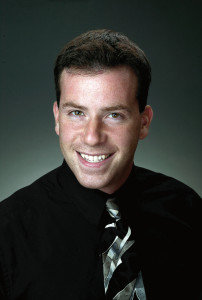 Today I welcome a friend from Writer’s Digest Books, Chuck Sambuchino, to TKZ. Chuck edits the GUIDE TO LITERARY AGENTS and the CHILDREN’S WRITER’S & ILLUSTRATOR’S MARKET. His Guide to Literary Agents Blog is one of the largest blogs in publishing. His 2010 humor book, HOW TO SURVIVE A GARDEN GNOME ATTACK, was optioned by Sony Pictures. His latest humor book, WHEN CLOWNS ATTACK: A SURVIVAL GUIDE, will protect people everywhere from the malicious bozos and jokers who haunt our lives. His books have been mentioned in Reader’s Digest, USA Today, the New York Times, The Huffington Post, Variety, New York Magazine, and more. You can follow Chuck on Twitter: @chucksambuchino.
Today I welcome a friend from Writer’s Digest Books, Chuck Sambuchino, to TKZ. Chuck edits the GUIDE TO LITERARY AGENTS and the CHILDREN’S WRITER’S & ILLUSTRATOR’S MARKET. His Guide to Literary Agents Blog is one of the largest blogs in publishing. His 2010 humor book, HOW TO SURVIVE A GARDEN GNOME ATTACK, was optioned by Sony Pictures. His latest humor book, WHEN CLOWNS ATTACK: A SURVIVAL GUIDE, will protect people everywhere from the malicious bozos and jokers who haunt our lives. His books have been mentioned in Reader’s Digest, USA Today, the New York Times, The Huffington Post, Variety, New York Magazine, and more. You can follow Chuck on Twitter: @chucksambuchino.
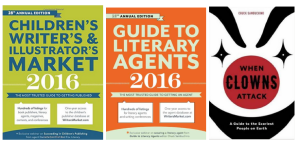
Welcome, Chuck. Has the role of a literary agent changed much over the last few years?
It depends on which agent you ask, but I expect every agent will tell you this: Every year, it gets a tiny bit more difficult to sell a book (especially by a new author), so nowadays there is massive pressure to turn in only the best, polished work to editors with a submission. That means a lot of agents are being pickier, and also being more editorial. It’s all about trying to send the best of the best work along.
Has the way a writer should approach an agent changed in any significant way?
Not really. The basic principles are still the same in terms of queries and submissions and manuscripts. In the nonfiction realm, the pressure of platform and marketing on the author’s shoulders increases year by year, but luckily that trend has not really gotten bad at all in the fiction world. Harking back to Question #1 again, I would say the only thing that’s different from 10 years ago is the pressure to turn in extremely polished work, so befriend some talented writing peers and be a ruthless self-editor.
What tips can you offer writers on the query process?
Here you go:
- Don’t say it’s your first novel, even if it is.
- Do not query more than one novel at a time.
- Don’t say family or friends or your dog liked the book.
- When you compose your novel pitch, remember to be specific and avoid vague language.
- Keep your query letter one page, single-spaced.
- Remember that if you have nothing to write in your bio, that’s okay. Just sign off by thanking the agent for their time.
- Never send an attachment unless an agent says to.
- If you’re not sure what to put in the subject line of your e-query, “Query: [title]” is a safe bet.
- Follow exactly the guidelines set by the particular agent.
What’s your take on the thriller and mystery markets?
These seem to be evergreen markets in the publishing world. People will always love thrillers and mysteries, so no matter what comes and goes (chick lit, new adult, etc.), a good heart-pounding book will always be attractive to agents, editors, and readers.
Can you recommend some agents currently looking for thrillers?
Sure. Here are 8 mini-profiles of agents seeking thriller submissions now. Every agent on this list has confirmed to me personally that as of October 2015, they are indeed open to subs. Query away, and good luck!
Eric Smith
P.S. Literary.
http://www.psliterary.com
How to contact: E-query query@psliterary.com with “Query for Eric” in the subject line. “Do not send attachments. Always let us know if your manuscript/proposal is currently under consideration by other agents/publishers. If you don’t receive a response to your query within 4-6 weeks it means a no from the agency.”
Jessica Sinsheimer
Sarah Jane Freymann Literary Agency
http://www.sarahjanefreymann.com
How to contact: E-query submissions@SarahJaneFreymann.
Ann Collette
Rees Literary Agency
http://www.reesagency.com/
How to contact: E-query Agent10702@aol.com and include your first chapter within the body of the email. Attachments and links will not be opened.
Stacey Donaghy
Donaghy Literary
http://www.donaghyliterary.com/
How to contact: E-query query@donaghyliterary.com. Place the following information in the email’s subject line: “Query” followed by story title, genre and the name of the agent that you are querying. Paste a 1- or 2-page synopsis below the query letter. Paste the first 10 pages of your double-spaced manuscript below the synopsis. No attachments.
Julie Stevenson
Waxman Leavell Literary Agency
http://www.waxmanleavell.com
How to contact: E-query juliesubmit@waxmanleavell.com. You may include 5-10 pages of your manuscript in the body of your email.
Alec Shane
Writers House
http://www.writershouse.com/
How to contact: Send the first 10 pages of your manuscript, along with your query letter, to ashane@writershouse.com with “Query for Alec Shane: [TITLE]” as your subject heading – no attachments.
Jennifer Johnson-Blalock
Liza Dawson Associates
http://www.lizadawsonassociates.com/
How to contact: E-mail queryjennifer@lizadawsonassociates.com.
Mallory C. Brown
TriadaUS
http://www.triadaus.com/
How to contact: E-query Mallory@triadaus.com. When querying, please include the first ten ms pages in the body of the e-mail after your query. “”I love a good sociopath and have yet to find one that is believable and not completely horrifying. I want my sociopath to be like Sherlock Holmes from BBC Sherlock, sociopathic but not inhuman, or Dexter, one with a code despite it not being societally correct.”
(For more agents, see a complete database in the 2016 Guide to Literary Agents.)
[NOTE FROM JSB: I’m traveling today from Bouchercon. Anyone reading this post with answers to specific comments/questions, feel free to chime in!]
In the Produce Aisle
Stories can be found everywhere. You don’t have to look for them; they come to you. Richard Matheson wrote the immortal short story “Duel” after a highway encounter — what we would now call “road rage” — with the driver of a tractor-trailer. I read another great short story, decades ago (and I wish I could remember the author) about a guy who brought his Sunday paper in from the front porch and there was a gawdawful bug on the inside of the newspaper bag which tried its best to kill him and almost succeeded. The author in his Afterward noted that the story was born as the result of a spider catching a ride into his house in the manner presented in the story. And so it goes.
I got the spark — and I mean the SPARK — yesterday in the produce aisle of a local supermarket. I was looking over the carrots and such when I heard a male voice, coming from close behind me, saying, “Hey, old man.” I ignored it —I mean, surely the guy could not be talking to me — yet the person persisted. “You,” he said, using a low voice. “With the concealed carry.” As it happens, I do have a concealed carry permit, and at the time had in my possession a .38 in a pocket holster. It’s very unobtrusive, so that it is not easy to tell when or if I’m carrying, unless someone is specifically looking for it. I turned around to find a stranger of about my height and age, wearing sunglasses and a gimme cap, smiling somewhat strangely at me. “You a fast draw?” he asked. I just shook my head and asked, “What do you mean?” He answered, while moving a step closer to me. “You got a gun. Think you can outdraw me?”
I was thinking at that point that I was dealing with someone who was very foolish at best or mentally unbalanced at worst. My primary concern, however, was that the store was busy. The produce department in this particular store is located close to the entrance and exit doors and everyone from retirees in golf shirts to moms in yoga pants were making cross patterns near us. I needed to move this encounter elsewhere, and quickly. I said to him, keeping my voice level, “This isn’t a conversation we should be having in here. Let’s go outside and talk about it.” My plan was to wait until we got into the store vestibule or just out to the parking lot where I planned to suddenly trip him, immobilize him, and have someone call 911.
This all changed when the stranger, instead of answering me, smiled, took off his sunglasses and cap, and said, “Hi, Joe.” The stranger turned out to be a friend of mine, someone I have known for decades and with whom I speak frequently but rarely see. He is retired from a very elite government agency where he was renowned for being able to substantially change his appearance with just a hat or glasses a talent which he demonstrably still possessed (and yes, the passage of time helped him, too). He was pranking me. Some might regard what he did to be foolish, but he knew exactly how I would react, or intended to react — much of what I have learned about such matters, I’ve learned from him — and thus inferred that I would not take action beyond that which would reasonably be called for at any particular point in the situation. As for myself, it took a few minutes to get my heart rate back to normal, as I went through the stuttering motions of keeping up a conversation and then completing my shopping. In addition to carrots, I suddenly needed to buy some bleach.
After I arrived home and got the groceries unpacked (note to the gentlemen out there: no husband was ever murdered by his wife while he was unpacking the groceries, no matter how egregious his sins) and started some laundry I realized that I had the opening hook of a domestic thriller which I’ve been toying with for months handed to me. Actually, I had several different beginnings handed to me. All of them involve a supermarket, a shopper seeming minding their own business, and an unexpected intervention which sets the plot for the rest of the book careening into a number of individuals’ lives like a bee bee in a box car.
So, tell us, please: have you been pranked recently (after all, it is the Halloween season)? Did it have a short or long-term effect on you? And does it have a potential as the springboard — a spark — for a story? If the answer to any of those questions is a yes, please share if you wish, but hold close if you must.

